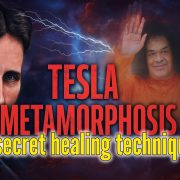Why Even Fit Celebrities Are Dying of Heart Attacks—And What You Can Do to Protect Yourself
You look fit. You go to the gym. You eat well (mostly). You feel fine.
But what if your heart is aging faster than the rest of your body—silently and invisibly?
Heart disease remains the No. 1 cause of death globally, and it’s striking earlier than ever—especially in India. From television stars to musicians, we’ve seen a disturbing pattern: young, healthy-looking individuals suddenly collapsing due to cardiac arrest.
Why is this happening? And how can you protect yourself—regardless of your age or fitness level?
Let’s explore the science of heart aging, learn from real-life cases, and uncover powerful ways to reclaim control.
⸻
🧠 What Is “Heart Age”—and Why Does It Matter?
Your chronological age is how many birthdays you’ve had. But your heart age is something else entirely. It reflects the actual health and resilience of your cardiovascular system, based on a number of lifestyle and biological factors such as blood pressure, cholesterol, physical activity levels, smoking habits, sleep quality, dietary patterns, and even your family history of disease.
Globally, research suggests that the average man’s heart is around eight years older than his real age. For women, the gap is about five years. Among Indian and South Asian populations, the difference is often even more pronounced due to a genetic predisposition to cardiovascular disease combined with modern lifestyle stressors.
The takeaway is sobering: even if you feel young and look fit, your heart may be working overtime—quietly and dangerously aging ahead of the rest of your body.
⸻
🖤 When Fitness Isn’t Enough: Celebrities We’ve Lost
Several high-profile, seemingly healthy Indian celebrities have passed away in recent years from sudden cardiac arrest—offering a tragic reminder that external fitness is no guarantee of internal health.
Sidharth Shukla, a beloved TV actor and Bigg Boss winner, died in his sleep at just 40 years old, despite maintaining a disciplined fitness routine. Puneeth Rajkumar, a superstar in Kannada cinema and known for his active lifestyle, collapsed during a workout at the gym. He was only 46.
Playback singer KK, or Krishnakumar Kunnath, died shortly after a high-energy concert performance at the age of 53. He had shown signs of discomfort but chose to power through. And comedian Raju Srivastava, just 58, suffered a cardiac arrest while on a treadmill. He was hospitalized but did not recover.
These stories are heartbreaking, but they serve as critical reminders: being active or slim isn’t the same as being heart-healthy. Silent risk factors, chronic stress, and unmonitored conditions can create a perfect storm.
⸻
🧬 What Causes the Heart to Age Faster?
As we grow older, the heart undergoes several structural and functional changes. The strength of its contractions weakens, reducing blood output—especially during moments of stress or exertion. Arteries and valves lose flexibility, making it harder for blood to flow freely, and increasing the risk of blockages, clots, or even stroke. The left ventricle—the heart’s main pumping chamber—may also thicken and stiffen, which interferes with its ability to fill and empty efficiently.
Meanwhile, the electrical signals that keep the heart beating in rhythm may start to misfire, leading to irregular heartbeats or arrhythmias.
Combine these natural aging processes with a modern lifestyle full of stress, poor sleep, sedentary habits, and overtraining without recovery, and your heart begins to wear down long before it should.
⸻
🚩 What Accelerates Heart Aging?
Certain lifestyle choices and health conditions are known to speed up the aging process of your heart. Smoking, including vaping, is one of the biggest culprits. Long periods of inactivity or unstructured, high-intensity exercise can also create strain, especially when done without proper guidance or health clearance.
High blood pressure, elevated cholesterol levels, obesity—particularly around the waistline—and poor blood sugar control all contribute significantly. So do chronic stress, sleep deprivation, and excessive use of alcohol or recreational drugs.
Even well-intentioned workouts, if done aggressively or without a medical check-up (especially after the age of 35), can cause more harm than good.
⸻
💥 Warning Signs You Should Never Ignore
The body gives subtle clues when the heart is under stress. Chest pain or tightness, even if mild, can be a red flag. Pain radiating to the jaw or left arm, breathlessness during everyday activities, sudden fatigue, cold sweats, light-headedness, or blackouts should all be taken seriously. Irregular heartbeats or palpitations are also worth investigating.
Even if you’re young or athletic, don’t brush these signs aside.
⸻
🔄 Can You Reverse Your Heart Age?
The good news: you absolutely can. By adopting a heart-focused lifestyle, it’s possible to lower your heart age and even reverse some of the early damage. Small, consistent changes can offer powerful protection.
⸻
✅ Start With What You Eat
Your diet plays a central role in heart health. Embrace more vegetables, seasonal fruits, whole grains, lentils, millets, flaxseeds, walnuts, and oily fish like salmon or sardines. Minimize your intake of refined carbohydrates, sugary treats, salty snacks, processed food, red meat, and fried items.
An Indianized version of the DASH or Mediterranean diet works wonderfully well—especially when meals are home-cooked, balanced, and based on seasonal ingredients.
⸻
✅ Exercise—but Exercise Smartly
Aim for at least 150 to 180 minutes of moderate aerobic activity every week. This can include walking, cycling, or swimming. Complement it with strength training or yoga twice a week for flexibility, muscle tone, and hormonal balance.
Avoid punishing yourself with extreme fitness routines unless you’ve had a medical check-up. Warming up before and cooling down after exercise, staying hydrated, and listening to your body are essential for longevity.
⸻
✅ Prioritize Sleep and Stress Recovery
Sleep is not a luxury—it’s a biological need. Get seven to eight hours of uninterrupted sleep every night. Avoid caffeine late in the evening, and turn off screens at least an hour before bed to allow your nervous system to wind down.
On high-stress days, give yourself permission to take short breaks, breathe deeply, and practice gratitude. These tiny pauses create long-term protection for your heart and nervous system.
⸻
✅ Stay Proactive With Medical Check-Ups
If you’re over 30—or have a family history of heart disease—don’t wait for symptoms to show up. Annual health screenings are your safety net. Monitor your blood pressure, cholesterol levels, and fasting blood sugar. Consider tests like HbA1c for long-term glucose control, ECG or treadmill tests if you have symptoms, and inflammation markers like hs-CRP or homocysteine if your doctor advises.
Being proactive here is life-saving.
⸻
🧘♂ Tap Into the Healing Power of Yoga and Pranayama
Yoga offers a gentle yet powerful way to reduce cardiac stress and enhance circulation.
Asanas like Tadasana (Mountain Pose) and Vrikshasana (Tree Pose) improve posture and stability. Setu Bandhasana (Bridge Pose) and Bhujangasana (Cobra Pose) open the chest and stimulate circulation, while Ustrasana (Camel Pose) expands the lungs and reduces anxiety. End your practice with Shavasana (Corpse Pose) to calm the mind and reset the nervous system.
Breathwork is equally potent. Anulom Vilom (alternate nostril breathing) balances the nervous system and reduces blood pressure. Bhramari (humming bee breath) and Sheetali (cooling breath) help soothe anxiety and cool the body. Chandra Bhedana activates the parasympathetic system, helping you relax. Even simple diaphragmatic breathing improves oxygenation and cardiac function.
Start with just five to ten minutes a day. Find a quiet space, sit comfortably, and give yourself permission to slow down.
⸻
🔚 Final Thoughts: Listen to Your Heart—Before It’s Too Late
Your heart doesn’t send out loud warnings. It quietly adjusts, compensates, and keeps going—until one day, it can’t.
Start now. Eat consciously. Sleep deeply. Move with intention. Breathe with awareness. Get checked regularly. These are not restrictions—they’re invitations to live longer, fuller, and stronger.
You don’t need to be a celebrity to be at risk. But you absolutely can become the hero of your own health journey.














Comments